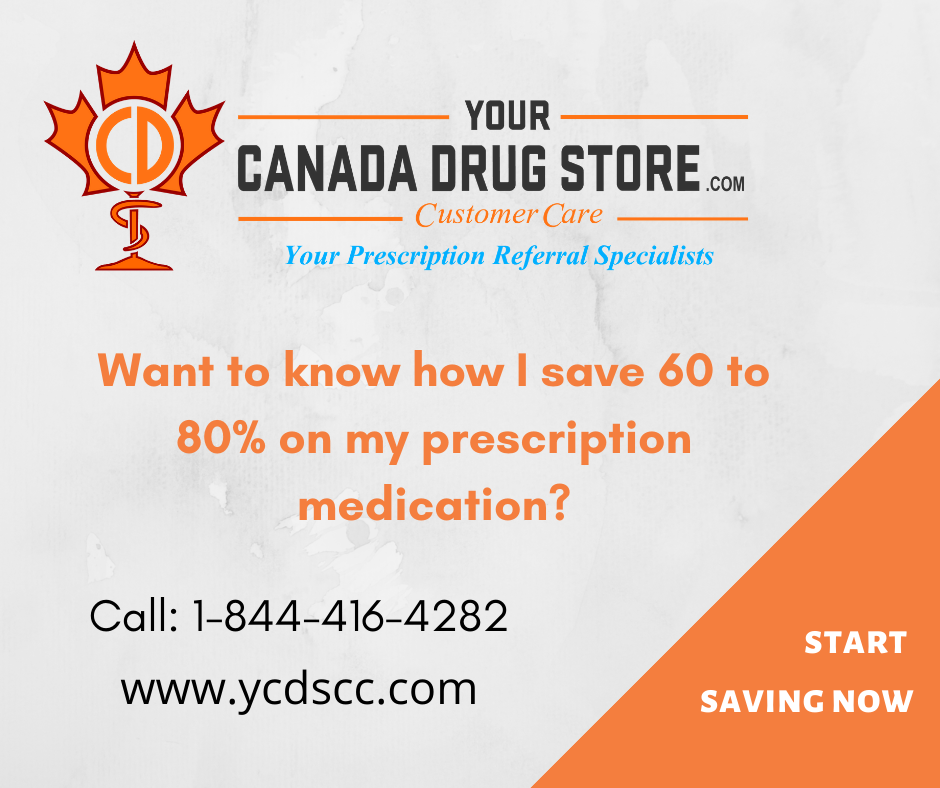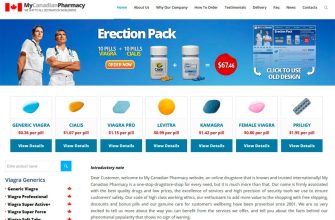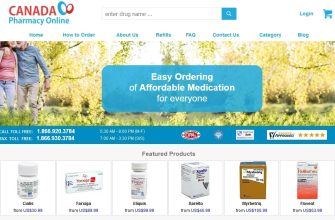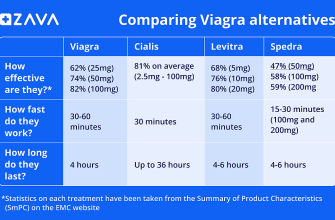Need affordable prescription medications? Consider Canadian pharmacies. Many offer competitive prices and convenient online ordering. However, navigating this market requires caution. This guide provides practical steps to ensure a safe and reliable experience.
First, verify the pharmacy’s legitimacy. Check for licensing information from Health Canada and a physical address in Canada. Look for reviews from verified customers; negative reviews regarding shipping times or medication quality should raise red flags. Compare prices across several reputable pharmacies – don’t just choose the cheapest option.
Second, prioritize your health. Always consult your doctor before starting any medication, even those purchased online. Ensure the pharmacy clearly states the medication’s ingredients and potential side effects. Pay close attention to shipping details; understand customs regulations and potential delays. A legitimate Canadian pharmacy will provide clear and accessible customer service channels should you encounter any issues.
Finally, remember that safe medication access requires responsible purchasing behavior. Avoid pharmacies offering unbelievably low prices or overly aggressive marketing. Secure payment methods and encrypted communication channels offer crucial protection against fraud. By following these guidelines, you can gain access to affordable medications while maintaining your health and safety.
- Canadian Pharmacy No Prescription: A Comprehensive Guide
- Understanding Canadian Pharmacy Regulations
- Identifying Reputable Canadian Pharmacies
- Safe Medication Practices
- Prescription Ordering Process
- Cost Considerations
- Legal Implications
- Final Note
- Legality and Risks of Buying Prescription Drugs Online Without a Prescription
- Legal Ramifications
- Health Risks
- Safer Alternatives
- Seeking Help
- Disclaimer
- Identifying Legitimate Canadian Online Pharmacies
- Look for Secure Website Features
- Verify the Pharmacist’s Credentials
- Understanding Canadian Pharmacy Regulations and Licensing
- Finding Provincial Regulatory Colleges
- Additional Verification Steps
- Potential Health Risks Associated with Unprescribed Medications
- Incorrect Dosage and Medication
- Adverse Drug Reactions and Interactions
- Lack of Medical Supervision
- Delayed or Inadequate Treatment
- Sources of Reliable Information
- Cost Comparison: Canadian Pharmacies vs. Local Pharmacies
- Factors Affecting Price Differences
- Specific Examples: Price Comparison
- Prescription Transfer and Legality
- Caveats: Shipping and Consultation
- Safe Alternatives to Buying Prescription Drugs Online Without a Prescription
- Exploring Affordable Healthcare Options
- Disclaimer: Seeking Professional Medical Advice
- Understanding Your Medications
- Emergency Situations
Canadian Pharmacy No Prescription: A Comprehensive Guide
Always prioritize your health and safety. Consult your doctor before starting any medication, even those from a Canadian pharmacy. They can assess your needs and potential interactions.
Understanding Canadian Pharmacy Regulations
Canadian pharmacies operating legally require prescriptions. Websites advertising “no prescription” medications often operate outside the law. Be wary of such sites, as they may sell counterfeit or substandard drugs posing serious health risks. Legitimate Canadian pharmacies adhere to strict regulations ensuring medication quality and patient safety.
Identifying Reputable Canadian Pharmacies
Verify a pharmacy’s legitimacy through independent sources like the College of Pharmacists of your province. Look for a physical address, contact information, and licensing details readily available on their website. Avoid pharmacies lacking transparency or those with overwhelmingly positive reviews – these can be fabricated. A well-established pharmacy will possess a history of verifiable operation.
Safe Medication Practices
Always check the expiry date on your medication. Store your prescriptions according to the manufacturer’s instructions. Proper storage helps maintain potency and prevents degradation. If you experience adverse reactions, contact your doctor immediately. Keep a detailed record of all your medications, including dosages and timings, to share with your doctor and pharmacist.
Prescription Ordering Process
A legitimate Canadian pharmacy will require a valid prescription from a licensed medical professional. This prescription might need to be uploaded or faxed to them. Expect secure payment methods and order tracking. A reliable pharmacy will provide clear communication throughout the process, including estimated delivery times.
Cost Considerations
Compare prices from multiple reputable pharmacies. However, remember that significantly lower prices might signal a problem. The medication’s origin and quality directly influence its cost. Don’t solely prioritize price; prioritize safety and authenticity.
Legal Implications
Importing medications without a prescription can have legal consequences. Understand the regulations governing the import of drugs into your country before ordering. Always act within the confines of the law. Seek legal advice if you are unsure about importation regulations.
Final Note
Prioritize your health. Research thoroughly, use caution, and ensure compliance with all relevant laws and regulations. Remember: your safety is paramount.
Legality and Risks of Buying Prescription Drugs Online Without a Prescription
Buying prescription drugs online without a prescription is illegal in most countries, including Canada. This includes medications ordered from Canadian pharmacies that don’t require a prescription.
Legal Ramifications
- You may face fines.
- Criminal charges are possible in some jurisdictions.
- Your health insurance may not cover treatment related to complications from unregulated medications.
Canadian law strictly regulates the sale and distribution of prescription medications. Ignoring these regulations carries serious consequences.
Health Risks
The biggest danger is the unknown quality and safety of the drugs. Without a prescription, you lack medical oversight. This poses significant risks:
- Incorrect dosage: Taking the wrong amount of medication can lead to serious health problems, including overdose.
- Drug interactions: Without a doctor’s knowledge of your other medications, dangerous interactions can occur.
- Counterfeit medications: Many online pharmacies sell fake drugs that contain incorrect ingredients or no active pharmaceutical ingredient at all.
- Adverse reactions: Unforeseen side effects can occur without proper medical monitoring.
- Delayed or improper treatment: Self-treating can delay or prevent proper diagnosis and treatment of underlying conditions.
Safer Alternatives
Always consult a doctor or licensed healthcare professional before starting any new medication. Legitimate online pharmacies require prescriptions. Explore options like telehealth services to access virtual consultations for prescription medications.
Seeking Help
If you’re struggling to afford your prescriptions, explore options like patient assistance programs or generic medications. Contact your doctor or local health authority for information on available resources.
Disclaimer
This information is for educational purposes and does not constitute medical advice. Always seek the advice of a medical professional for any questions about your particular circumstances.
Identifying Legitimate Canadian Online Pharmacies
Check the pharmacy’s registration with the College of Pharmacists of your province. Each province maintains a register of licensed pharmacies; verify the online pharmacy’s license number directly through the college’s website. This confirms they operate legally within Canada.
Look for Secure Website Features
Secure websites use HTTPS, indicated by a padlock icon in the browser’s address bar. Also, look for a physical address and contact information prominently displayed, including a phone number and email address. Avoid pharmacies without this information.
Scrutinize their privacy policy. A reputable pharmacy clearly outlines how they handle your personal and health information, ensuring adherence to Canadian privacy regulations.
Examine their return policy. Legitimate pharmacies typically have a transparent and straightforward return policy should you need to return or exchange medication. Be wary of those that lack this.
Verify the Pharmacist’s Credentials
A legitimate Canadian online pharmacy should clearly state the pharmacist’s name and licensing information. This information should be verifiable through the appropriate provincial college of pharmacists.
Be cautious of extremely low prices. Unusually cheap medications might indicate counterfeit drugs or a fraudulent operation. Price should be competitive, not suspiciously low.
Read online reviews carefully. While reviews can be manipulated, consider the overall sentiment and look for consistent patterns in feedback. Be mindful of suspiciously positive or overwhelmingly negative reviews.
Understanding Canadian Pharmacy Regulations and Licensing
Verify a pharmacy’s license directly with the provincial regulatory college. Each province has its own college responsible for licensing pharmacies and pharmacists. These colleges maintain online registries allowing you to confirm a pharmacy’s legal operation and the pharmacist’s qualifications.
Finding Provincial Regulatory Colleges
A quick online search for “[province name] pharmacy college” will usually provide the correct website. Look for a search function on the college’s site to verify licensing details. Check both the pharmacy’s name and the pharmacist’s registration number (if available) to ensure complete accuracy.
Additional Verification Steps
Confirm the pharmacy’s physical address matches the address listed on their website. A legitimate Canadian pharmacy will openly display its contact information, including a physical address and phone number. Be wary of pharmacies lacking this transparency. Scrutinize the website for professional design and clear information. Avoid pharmacies with unprofessional websites or confusing language.
Potential Health Risks Associated with Unprescribed Medications
Ordering medication online without a prescription carries significant health risks. These risks stem from several factors, including inaccurate diagnoses and potential drug interactions.
Incorrect Dosage and Medication
- Taking the wrong medication can lead to ineffective treatment or serious adverse reactions. Your body may react unpredictably to substances it wasn’t intended to receive.
- Incorrect dosages, whether too high or too low, can cause serious harm. Overdosing can be fatal, while underdosing can render the medication useless or allow the condition to worsen.
- Counterfeit medications are prevalent in online pharmacies. These drugs may contain harmful ingredients, the wrong active substances, or no active ingredients at all.
Adverse Drug Reactions and Interactions
Taking unprescribed medication can trigger unforeseen drug interactions, particularly if you are already taking other medications, supplements, or have underlying health conditions. This includes:
- Allergic reactions ranging from mild rashes to life-threatening anaphylaxis.
- Increased risk of bleeding or clotting problems, depending on the medication.
- Damage to vital organs like the liver or kidneys.
- Negative interactions with other medications you are taking, potentially neutralizing their effects or increasing side effects.
Lack of Medical Supervision
A doctor assesses your health history and current medications before prescribing anything. Without this evaluation, you lack the crucial oversight needed to monitor your response to treatment and make necessary adjustments.
Delayed or Inadequate Treatment
Self-treating can delay proper diagnosis and treatment of underlying conditions. This delay can lead to worsening symptoms and potentially irreversible health damage.
Sources of Reliable Information
For accurate health information and appropriate medication, consult a licensed healthcare professional. They can provide personalized guidance and ensure your safety.
Cost Comparison: Canadian Pharmacies vs. Local Pharmacies
Generally, Canadian pharmacies offer significantly lower prices on many prescription medications compared to US pharmacies. This difference stems from various factors including government price controls and different drug pricing structures.
Factors Affecting Price Differences
Several factors contribute to this price discrepancy. Canadian government regulations often cap drug prices, leading to lower costs for consumers. Additionally, the Canadian healthcare system differs substantially from the US system, impacting drug pricing strategies. Marketing costs also tend to be lower in Canada, further reducing the final price.
Specific Examples: Price Comparison
Let’s examine some examples. A common medication like Lipitor (Atorvastatin) might cost $50 in a US pharmacy, while a comparable medication from a Canadian pharmacy could cost $25. Similar savings can be observed with other frequently prescribed medications. Remember to check the exact medication name and dosage when comparing prices.
| Medication | US Pharmacy (Estimated) | Canadian Pharmacy (Estimated) |
|---|---|---|
| Metformin 500mg (30 tablets) | $30 | $15 |
| Simvastatin 20mg (30 tablets) | $40 | $20 |
| Lisinopril 20mg (30 tablets) | $25 | $12 |
Note: These are estimated prices and can vary depending on the specific pharmacy, insurance coverage, and medication dosage. Always confirm prices directly with your chosen pharmacy.
Prescription Transfer and Legality
Transferring prescriptions is a straightforward process; most Canadian pharmacies readily accept prescriptions from US doctors. It’s crucial, however, to ensure you are using a licensed and reputable Canadian pharmacy to maintain safety and legality.
Caveats: Shipping and Consultation
Bear in mind that shipping costs will add to the overall expense, although this is often still less than the price difference. It’s also recommended to contact your doctor for advice before ordering medications from a Canadian pharmacy to ensure the prescription is appropriate.
Safe Alternatives to Buying Prescription Drugs Online Without a Prescription
Consult your doctor. This is the safest and most reliable way to obtain prescription medication. They can assess your health needs, prescribe the appropriate medication, and monitor your progress.
Exploring Affordable Healthcare Options
Consider exploring affordable healthcare options like community health clinics or telehealth services. Many clinics offer sliding-scale fees based on income, making healthcare more accessible. Telehealth provides convenient virtual consultations with doctors, often at lower costs than traditional in-person visits.
Investigate patient assistance programs. Many pharmaceutical companies offer assistance programs to help patients afford their medications. These programs can significantly reduce or eliminate the cost of prescription drugs. Check the manufacturer’s website or consult your pharmacist for details.
Negotiate prices at your local pharmacy. Don’t hesitate to ask your pharmacist about potential discounts or lower-cost alternatives. They might be able to offer generic brands or suggest ways to save money on your prescriptions. Pharmacy comparison websites can help you find the best prices in your area.
Check your insurance coverage. Thoroughly review your insurance policy to understand your prescription drug coverage. Many insurance plans offer discounts or co-pay assistance. Contact your insurance provider to learn about your specific benefits.
Disclaimer: Seeking Professional Medical Advice
Always consult your physician or other qualified healthcare professional before starting any new medication, including those obtained from an online pharmacy. This includes medications purchased without a prescription. Your doctor can assess your medical history, current health conditions, and potential drug interactions to ensure the medication is safe and appropriate for you. Ignoring this advice may lead to health complications.
Understanding Your Medications
Never self-diagnose or self-medicate. Accurate diagnosis requires a thorough examination and potentially tests. Online pharmacies might offer convenience, but they cannot replace a doctor’s professional assessment. Be sure to understand the potential side effects and contraindications associated with any medication before taking it, information you should obtain from your doctor and the medication’s package insert.
Emergency Situations
For urgent medical concerns, always contact emergency services or go to the nearest hospital immediately. Do not rely on online pharmacies for treatment of life-threatening conditions. Appropriate and timely medical attention is critical in emergency situations.










